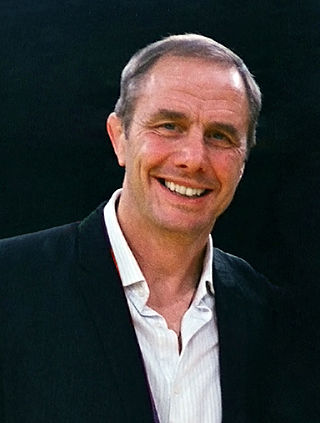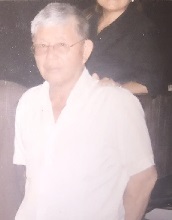Related Research Articles

Alfred Harold Douglas Rogers was a Canadian Olympic competitor in judo, and the first Canadian to win an Olympic medal in the sport. He was an honoured member in the Canadian Sports Hall of Fame. His best results were a silver medal in the 1964 Tokyo Olympics and a gold medal at the Pan American Games, in 1967. He was a student of Masahiko Kimura.

Adrian Neil Adams, is an English judoka who won numerous Olympic and World Championship medals in judo representing Great Britain. He was appointed Member of the Order of the British Empire (MBE) in the 1983 New Year Honours for services to judo.

Nicolas Gill is a Canadian judoka who competed at four consecutive Olympic Games. He is a two-time Olympic medalist, receiving a bronze in the middleweight (86 kg) division at his inaugural Olympiad in Barcelona. He received a silver medal in the men's half-heavyweight (100 kg) division at the 2000 Sydney Summer Olympics.
Yoshisada Yonezuka, was a Judo instructor and two time U.S. Olympic Judo Team coach.
Mark Berger is a Ukrainian-born Canadian judoka. He won the gold medal in the men's heavyweight judo event at the 1983 Pan American Games and a bronze medal at the 1984 Summer Olympics. He also competed in sambo, winning silver at the 1988 World Championships.

The Japanese martial art and combat sport judo has been practised in Canada for over a century. The first long-term judo dojo in Canada, Tai Iku Dojo, was established by a Japanese immigrant named Shigetaka "Steve" Sasaki in Vancouver in 1924. Sasaki and his students opened several branch schools in British Columbia and even trained RCMP officers until 1942, when Japanese Canadians were expelled from the Pacific coast and either interned or forced to move elsewhere in Canada due to fears that they were a threat to the country after Japan entered the Second World War. When the war was over, the government gave interned Japanese Canadians two options: resettle in Canada outside of the 'Japanese exclusion zone' or emigrate to Japan.
Tina Takahashi is a Canadian judoka, coach and author. She won Canada's first gold medal at the World University Games in Judo in 1984 and coached Canada's first women's Judo Olympian Sandra Greaves in the 1988 Olympics in Seoul. Takahashi was the first Canadian woman to achieve the rank of roku-dan, and the first women's Sport Canada carded athlete.
Pier Morten is a Canadian judoka and wrestler, and is the world's first deaf-blind black belt in Judo. Morten competed in seven Paralympic Games, four in Judo and three in Wrestling, and served as Canada's flag-bearer for the closing ceremony at the 2000 Paralympics. He won bronze in Judo in the -65 kg category in 1988, 71 kg category in 1992, and -73 kg category in 2000, and silver in Wrestling in the -64 kg category in 1984.

Shigetaka "Steve" Sasaki was a Japanese and Canadian judoka who founded the first judo club in Canada and is considered the 'Father of Canadian Judo'. After establishing the Tai Iku Dojo in Vancouver in 1924, Sasaki and his students opened several branch schools in British Columbia and also trained RCMP officers until 1942, when Japanese Canadians were expelled from the Pacific coast and either interned or forced to move elsewhere in Canada due to fears that they were a threat to the country after Japan entered the Second World War. When the war was over, the government required interned Japanese Canadians to either resettle in Canada outside of British Columbia's 'Japanese exclusion zone' or emigrate to Japan.
Danielle Zangrando is a retired Brazilian judoka who competed in the women's lightweight category. She picked up a total of thirty medals in her career, including three from the Pan American Games, and a bronze from the 1995 World Judo Championships in Chiba, Japan, and also appeared in the 57-kg class in two editions of the Olympic Games. Growing up in Santos, Zangrando took up judo at the age of 5 following her brother to the dojo of sensei Paulo Duarte. Throughout most of her sporting career, Zangrando trained under Duarte as a full-fledged member of the judo squad for Santos FC Judô.

Mamoru Matsunaga was a ninth degree (kudan) judo sensei. Introducing the sport to the Dominican Republic after emigrating there in 1957, he was called "the father of Dominican judo". He was inducted into the Dominican Sports Hall of Fame in 2009.
Mitchell Kawasaki is a Canadian wrestler and judoka. He competed in the men's Greco-Roman 48 kg at the 1976 Summer Olympics, and represented Canada at the World Judo Championships in 1971 and 1973. He is currently the chief instructor of Kawasaki Rendokan Judo Academy in Hamilton, Ontario, founded by his father Masao Kawasaki in 1958, and has held numerous positions in Judo Ontario and Judo Canada.
Raymond Damblant is a French and Canadian judoka, one of only five Canadian judoka to achieve the rank of kudan, and has been deeply involved in the development of Canadian Judo, especially in Quebec. He has refereed at three Olympics and six World Judo Championships, coached the Canadian judo team on multiple occasions, held multiple positions on Judo Canada's executive committee, served as the founding President of Judo Quebec, and was inducted into the Judo Canada Hall of Fame in 1996.
Hiroshi Nakamura is a Japanese and Canadian judoka, one of only five Canadian judoka to achieve the rank of Kudan, and has been deeply involved in the development of Canadian Judo. He has coached the Olympic judo team five times, was inducted into the Judo Canada Hall of Fame in 1998, was made a Member of the Order of Canada in 2013, and was inducted into the Canadian Olympic Committee Hall of Fame in 2019. In 2023, he was awarded the Order of Sport, marking his induction into Canada's Sports Hall of Fame. Nakamura trains future Olympians at the Shidokan Judo Club, a training club that he opened in 1973.
Yeiji "Lanky" Inouye was a Canadian judoka, is one of only five Canadian judoka to achieve the rank of Kudan, and was deeply involved in the development of judo in Canada. He was President of Judo British Columbia, Coach for the 1969 Canadian World Judo Championships team, Chairman of the National Grading Board, inducted into the Judo Canada Hall of Fame in 2001, and inducted into the Victoria Hall of Fame in 2018. Inouye co-founded the Victoria Judo Club in 1957.
Yuzuru "Jim" Kojima is a Canadian judoka who has been deeply involved in the development of Canadian Judo, and was made a Member of the Order of Canada in 1983 and decorated with the Order of the Rising Sun, Gold Rays with Rosette in 2011 for his efforts. He has been the President of Judo Canada, Director of the International Judo Federation Referee Commission, Chair of the 1993 World Judo Championships in Hamilton, Ontario, and was inducted into the BC Sports Hall of Fame in 2023.
Carl "Dutchie" Schell was a Canadian judoka who played a significant role in the development of judo in Canada, especially New Brunswick. Schell established the first judo club in New Brunswick at the Saint John YMCA in 1958, then co-founded the Shimpokai Judo Club with Harry Thomas, John Crawford, Doug Kearns, and Ken Meeting in Saint John in 1959. He also founded the New Brunswick Kodokan Black Belt Association in 1961, served as its President and in other executive roles, served as Atlantic vice-president of Judo Canada, and coached the New Brunswick judo team. Schell was inducted into the Saint John Sports Hall of Fame in 2000, the Judo Canada Hall of Fame in 2003, and the New Brunswick Sports Hall of Fame in 2007.
The Japanese martial art and combat sport judo has been practised in the Canadian province of Manitoba since the 1940s.
References
- 1 2 "Congratulations Sensei Moe Oye". Judo Manitoba. 19 January 2021. Retrieved 5 July 2021.
- ↑ Gill, Nicolas; Leyshon, Glynn (2019). Judoka: The History of Judo in Canada (Second ed.). Montreal: Marcel Broquet. pp. 123–4.
- ↑ "Honoured Members Database - Moe Oye". Manitoba Sports Hall of Fame. Retrieved 5 July 2021.